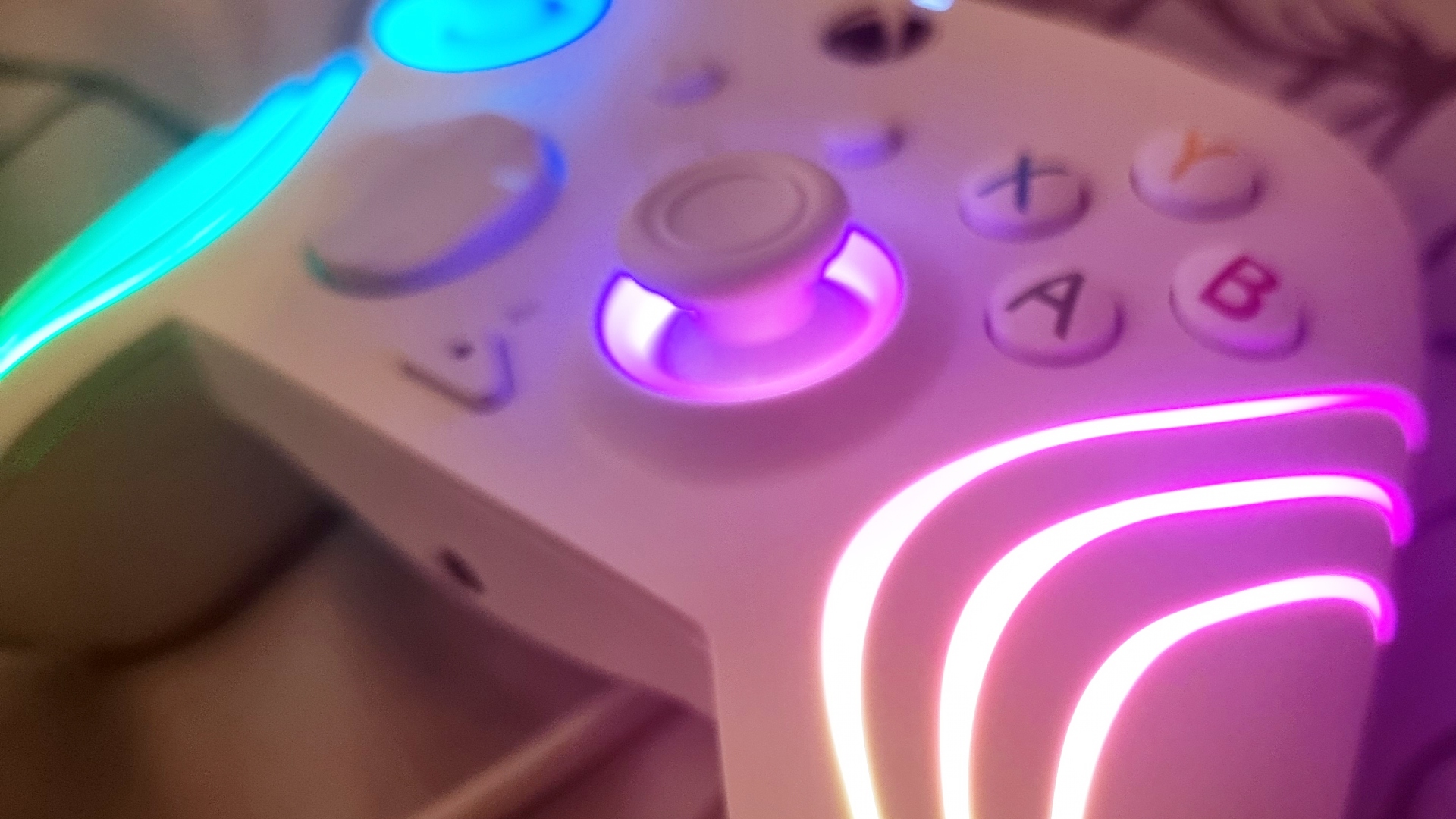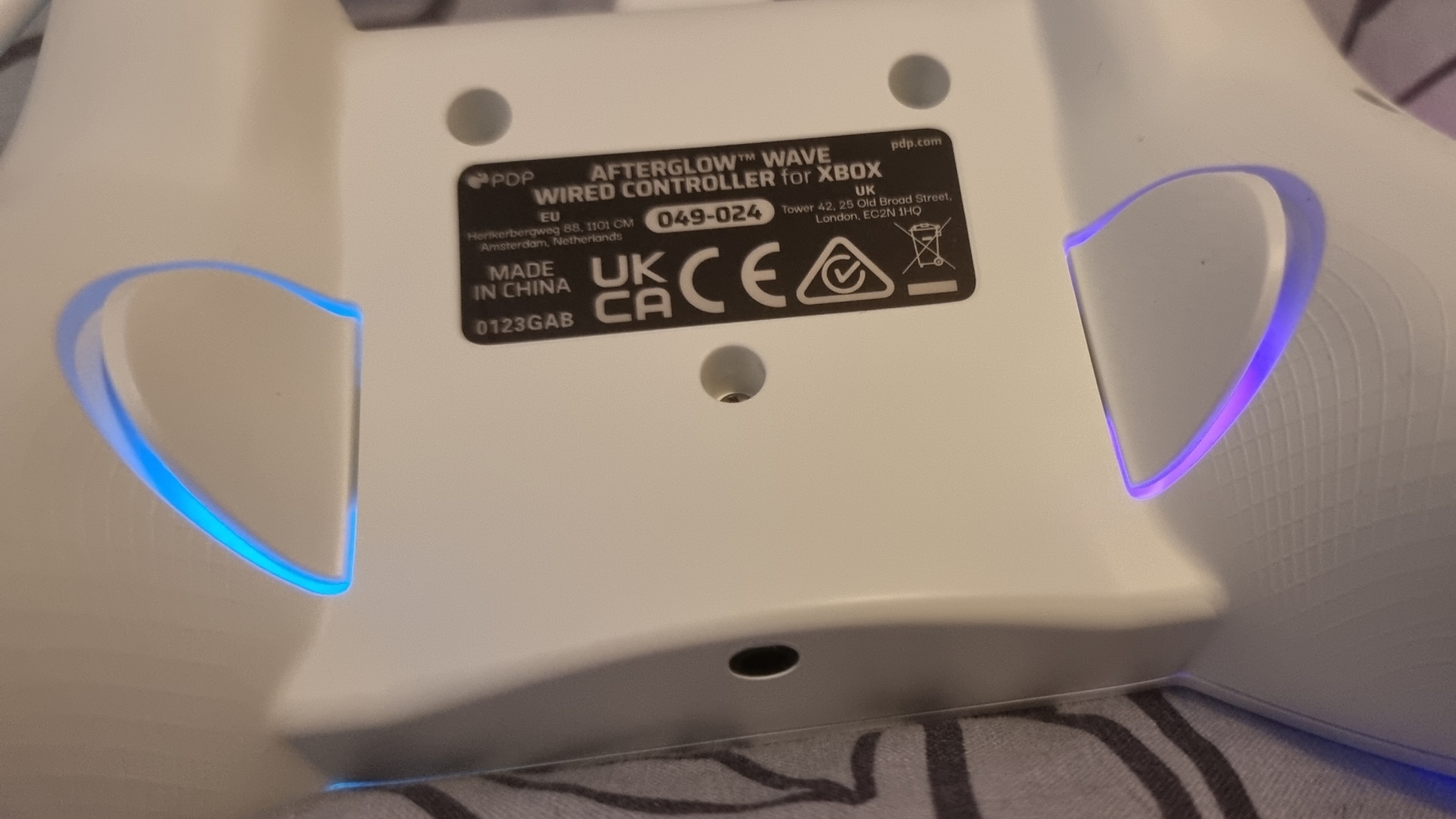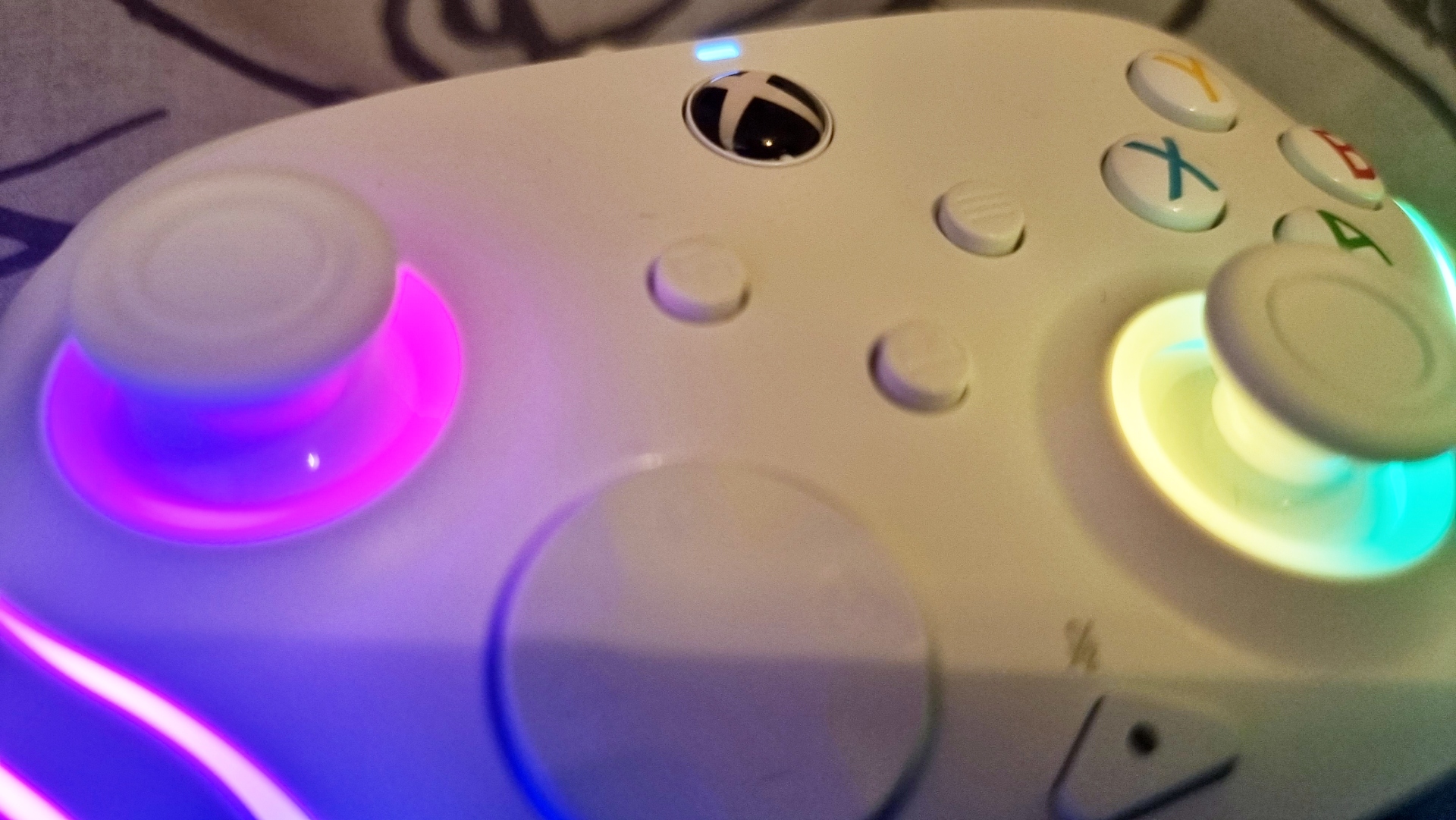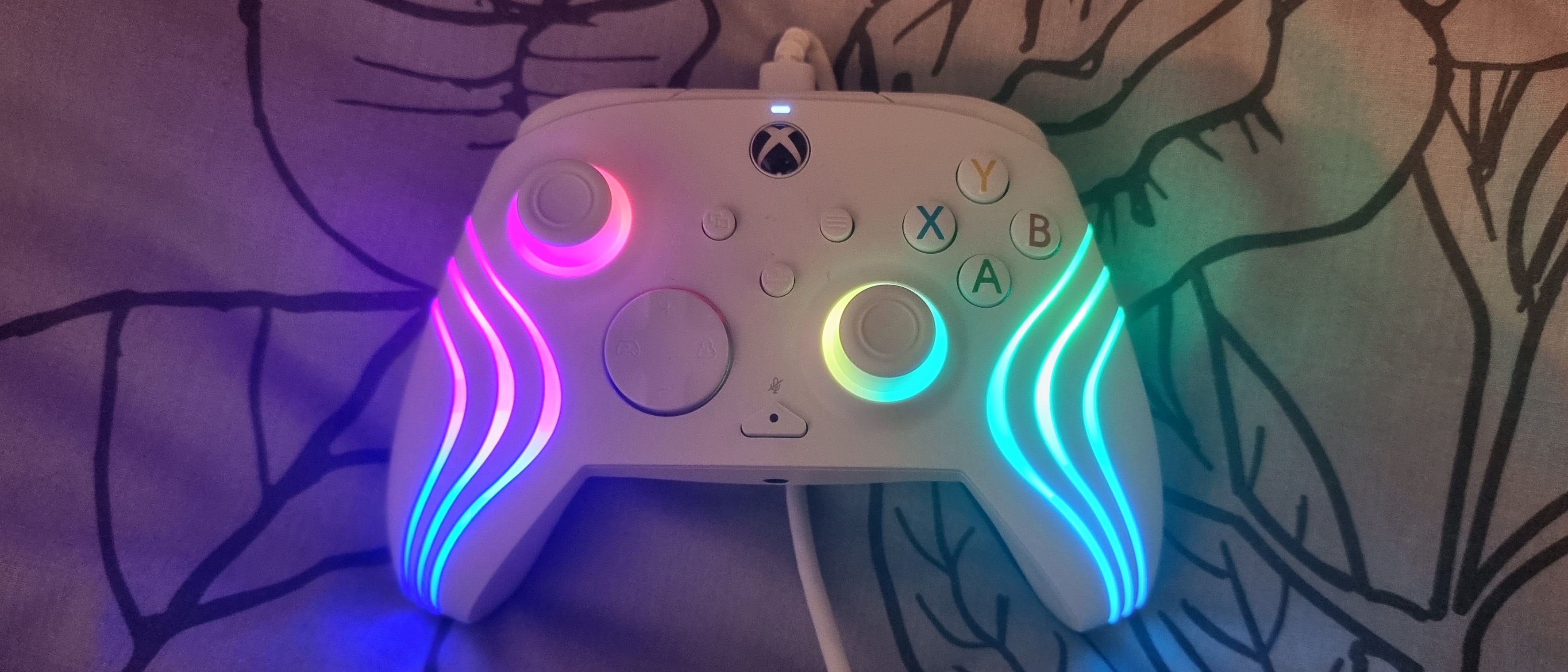TechRadar Verdict
The PDP Afterglow Wave has some of the most impressive, and customizable, RGB lighting I’ve seen for an Xbox controller. However, it’s let down in most other areas. The gamepad’s casing and modules feel cheap and slightly stiff, making for an overall unsatisfying play experience that’s difficult to recommend.
Pros
- +
Eye-catching, customizable RGB
- +
Two programmable back buttons
- +
Budget-friendly
Cons
- -
Poor build quality
- -
Stiff sticks and triggers
- -
Wired only
Why you can trust TechRadar
The PDP Afterglow Wave sets a mighty fine first impression, at least out of the box. Boot up your console with the gamepad plugged in via USB-C and you’ll be treated to a lovely RGB lighting effect that cascades down the grips, and lights up the surroundings of each analog stick. It’s certainly an eye-catching pad, and one that would suit RGB heavy gaming setups.
Unfortunately, all other aspects of the Afterglow Wave can’t match its lovely lighting. Overall, the controller has a cheap, almost tacky feel to it. This is especially apparent in the analog sticks, bumpers, face buttons, and triggers which all feel frustratingly stiff and below the level of quality you should expect. The two programmable back buttons do salvage things somewhat, however, feeling nicely tactile. Additionally, the circular D-pad design is a welcome touch.
Still, there is an argument to be made in favor of the Afterglow Wave in that of its welcomely affordable sticker price. But, the same can be said for some of the best Xbox controllers, including the 8BitDo Pro 2 and HyperX Clutch Gladiate, which sit around the same price point and perform much better overall which leaves this one with precious little to say for itself.
PDP Afterglow Wave - price and availability
The PDP Afterglow Wave is available to buy right now, for $44.99 / £34.99 / AU$69. The gamepad is purchasable from PDP’s official website, as well as big box retailers like Amazon, Best Buy and Gamestop. If you’re not keen on the default black colorway, then white and gray options are also available should you prefer.
PDP Afterglow Wave - design and features

The most eye-catching design element of the PDP Afterglow Wave is certainly its RGB lighting, which is some of the best I’ve seen for an Xbox Series X|S controller. I love the cascading light trail that slides down the sides of the controller’s grips, and the ring of RGB around both analog sticks is an equally nice touch. Even better, you can fully customize your lighting profile, including colors, patterns and speed, via the PDP Control Hub app if you’re playing on PC.
It’s a crying shame, then, that the rest of the controller’s features don’t match up in terms of quality. The Afterglow Wave’s build feels fairly cheap, which may be expected for a budget pad. However, the 8BitDo Pro 2 proves that you can have high build quality and affordability both. The Afterglow Wave’s RGB lighting is doing some extra heavy lifting here, but overall I would have preferred even slightly better build quality.
As for ancillary features, the Afterglow Wave does feel complete with a 3.5mm headphone jack, a dedicated mic mute button and two additional back paddle buttons, which can be assigned to an input of your choosing via the PDP Control Hub app, wherein you’re able to set multiple button profiles, too.
Sign up for breaking news, reviews, opinion, top tech deals, and more.
PDP Afterglow Wave - performance

Being a wired only controller, you can expect minimal input lag when using the PDP Afterglow Wave, which is always nice. Wireless functionality would of course have been welcome, but that is a rarity at this price point. The included USB-C cable is at least of a decent length (10ft), so you should have no trouble sitting comfortably during play.
The controller’s modules are underwhelming overall. Almost every module on the controller, including sticks, bumpers and triggers, all feel unnaturally stiff. They offer slightly more resistance than what I’m used to, especially compared to the pack-in Xbox Wireless Controller and the manufacturer’s own Victrix Gambit. This proved to be an issue in racers like Forza Horizon 5, and shooters including Halo Infinite, where trigger management is especially important.
The one saving grace here is those competent back paddle buttons, both of which feel nicely tactile and satisfying to press. I found myself assigning frequent inputs to these buttons, such as accessing secondary hotbars in Final Fantasy 14 Online, and felt like this was something the Afterglow Wave handled very well. It’s just a shame the rest of the controller’s modules don’t share that level of quality.
Should I buy the PDP Afterglow Wave?

Buy it if...
You’re on a stricter budget
It’s one of the more affordable options for Xbox controllers out there, making it a decent fit as a secondary, or spare, gamepad.
You value aesthetics
The Afterglow Wave’s RGB lighting is delightful, and the extra customizability here will be a big selling point for some.
Don't buy it if...
You want something of a higher quality
In its price range, pads like the 8BitDo Pro 2 and PowerA Fusion Pro 3 provide overall better build quality and functionality.
How we reviewed the PDP Afterglow Wave
We tested the PDP Afterglow Wave over the course of about a week, making sure to play a variety of titles across Xbox Series X and PC. While we rate the aesthetics of the controller, what was most important was testing its overall performance, which was overall quite underwhelming no matter the title we tested it with.
Interested in more Xbox hardware? Have a read of our best Xbox Series X accessories and best Xbox Game Pass streaming accessories guides to upgrade your experience on Microsoft's current-gen systems.

Rhys is TRG's Hardware Editor, and has been part of the TechRadar team for over four years. Particularly passionate about high-quality third-party controllers and headsets, Rhys strives to provide easy-to-read, informative coverage on gaming hardware of all kinds. As for the games themselves, Rhys is especially keen on fighting and racing games, as well as soulslikes and RPGs.
